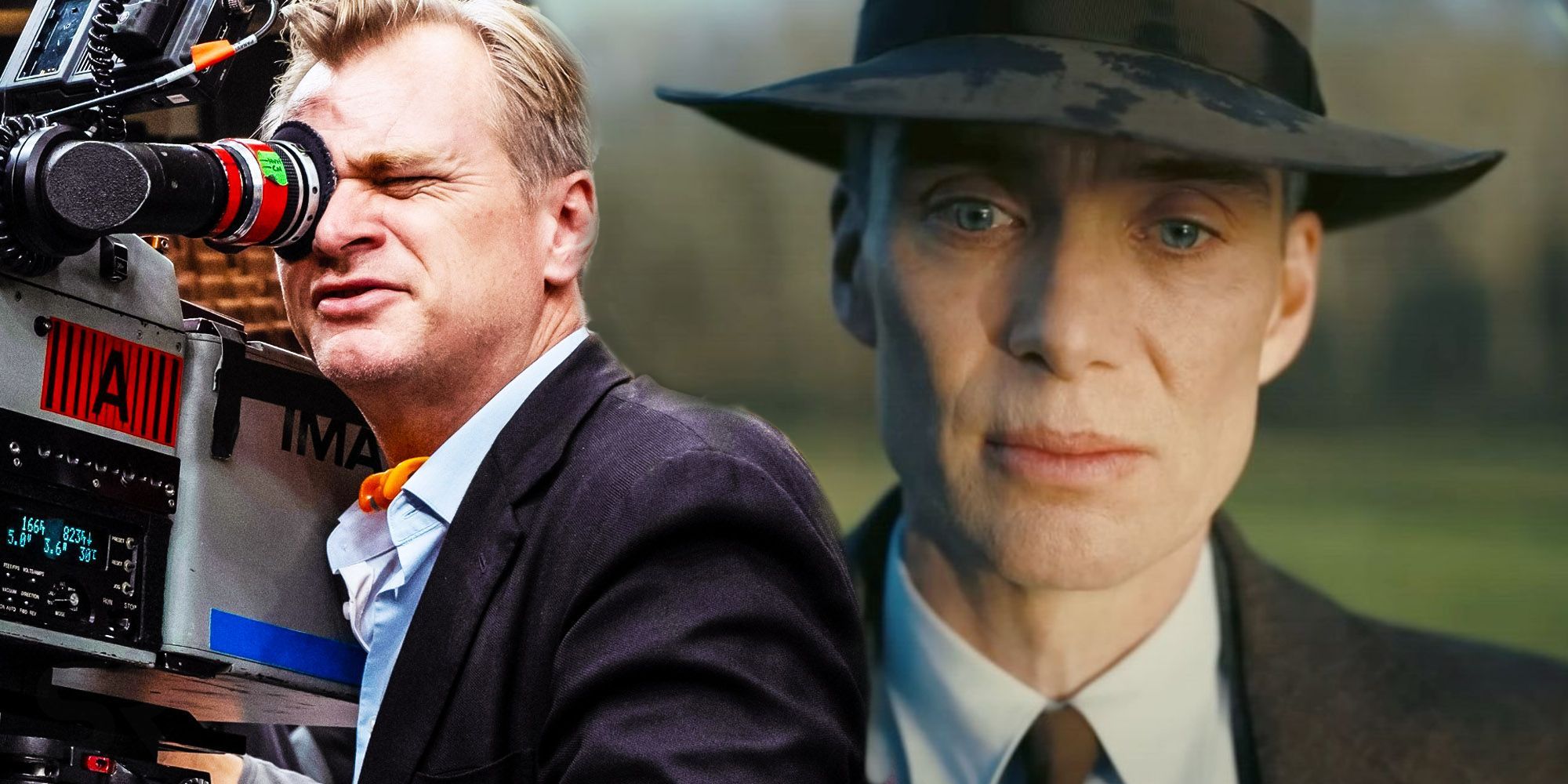
Landmark Film 'Oppenheimer' Debuts in Japan, Unveiling the Legacy of Nuclear Warfare

Japanese audiences eagerly anticipate the premiere of the award-winning biopic, 'Oppenheimer,' shedding light on the aftermath of nuclear conflict in the only nation to witness its devastation. After a global wait, viewers in Japan can now experience the acclaimed film's portrayal of historical events.
Japanese movie fans were finally able to watch "Oppenheimer" this weekend, after waiting eight months since its global release. There were concerns about how the film would be received in the only country to have experienced the tragedy of nuclear weapons firsthand.
The blockbuster movie, directed by Christopher Nolan, won an Oscar and was a huge success in 2023. It was released at the same time as "Barbie," creating a worldwide movie event known as "Barbenheimer."
Many Japanese people were left feeling uncomfortable by the framing of the movie, which focuses on the destructive technology developed by J. Robert Oppenheimer and his team of scientists.
There were concerns in Japan that the unofficial “Barbenheimer” marketing campaign downplayed the seriousness of the 1945 nuclear attacks on Hiroshima and Nagasaki. As a result, Universal Pictures decided not to include Japan in the global release of the movie last July.
The three-hour biopic released last year has set new records, becoming the top-grossing movie set in World War II, as reported by Universal. In Japan, it debuted at number four at the box office last Friday, earning 379 million yen ($2.5 million) in its first three days, according to industry tracker Kogyo Tsushinsha.
Universal consulted Tomonaga Masao, an atomic bomb survivor and president of a Nagasaki-based “hibakusha” group, as part of their promotional campaign. Masao shared his views on the movie's official Japanese website, expressing how he could relate to the titular character's struggle in the latter part of the film. This is particularly evident when Oppenheimer starts to resist the nuclear arms race that follows the war.
In his quotes published on the website, Masao highlighted the relevance of the movie to the current global issues. He noted that the themes of striving for a nuclear-free world resonate with the fundamental problems faced by the world today.
He added that Nolan's hidden message is about politicians taking on their responsibilities.
Former Hiroshima Mayor Hiraoka Takashi noted that he saw "a man full of contradictions." He mentioned that the state weaponized Nolan's scientific work and ignored his warning about the threat of nuclear war.
"The atmosphere of those days still lingers in our world today," he mentioned. "I would love to revisit it and reflect on the values of a nation that upholds nuclear deterrence."
Cillian Murphy plays J. Robert Oppenheimer in 'Oppenheimer.'
Cillian Murphy plays J. Robert Oppenheimer in 'Oppenheimer.'
Melinda Sue Gordon/Universal Pictures
The biopic that won big at the Academy Awards recently tells the story of Oppenheimer, a physicist and the son of a German textile importer. He collaborated with the US government to create a bomb to stop the threat of Nazi Germany and its allies.
This invention by Oppenheimer had a powerful impact when it was first deployed on August 6, 1945. A US B-29 bomber called Enola Gay dropped an atomic bomb on Hiroshima, causing devastating destruction.
Three days later, another B-29, called Bockscar, dropped an atomic bomb on Nagasaki. The twin bombings resulted in at least 110,000 immediate deaths. According to the US Department of Energy’s history of the Manhattan Project, hundreds of thousands more were believed to have died from related side effects, such as cancer, within the next five years.
The bombings led to Japan's surrender, marking the end of World War II. However, the event remains a deeply painful memory for Japan and continues to spark significant ethical debates. This partly explains why last year’s “Barbenheimer” memes had contrasting receptions in Japan.
Last July, social media was flooded with unofficial fan-made “Barbenheimer” memes following the release of two blockbuster movies on the same day. Warner Bros. Film Group faced criticism in Japan for using the memes for its “Barbie” film on its X account and later issued an apology. It's worth noting that Warner Bros. is a part of Warner Bros. Discovery, similar to CNN.
During that time, a competing hashtag, #NoBarbenheimer, gained traction on social media in Japan. Images circulated online depicted signs displayed at the entrances of various Tokyo theaters cautioning viewers about the movie's depiction of nuclear tests, which could potentially evoke memories of the devastation caused by atomic bombs.
Viewers in Japan took to social media to share their thoughts after watching the film, which had been released eight months prior.
One user, X, expressed mixed emotions when the names of Japan, Hiroshima, and Nagasaki were mentioned in the film. Despite this, they found themselves fascinated by the beautifully depicted scenes of the atomic bomb tests.
Another user described it as “heavy, painful heart wrenching, sad and fragile… yet beautiful.”
Rishu Kanemoto, a 19-year-old student, saw the film on Friday.
“Hiroshima and Nagasaki, where the atomic bombs were dropped, are certainly the victims,” he told Reuters.
But he also expressed sympathy for Oppenheimer.
“I think even though the inventor is one of the perpetrators, he’s also the victim caught up in the war,” he added.
Editor's P/S:
The release of "Oppenheimer" in Japan has stirred complex emotions, prompting a thoughtful examination of the film's portrayal of the atomic bombings and their lasting impact. The decision to exclude Japan from the initial global release due to concerns about the insensitive "Barbenheimer" marketing campaign highlights the delicate nature of addressing such a sensitive topic. Despite these concerns, the film has received a nuanced response from Japanese viewers, who acknowledge the tragedy's victims while also expressing sympathy for Oppenheimer's role as both perpetrator and victim in the unfolding events.
The film's resonance with contemporary global issues, particularly the ongoing pursuit of nuclear disarmament, underscores its relevance and timeliness. Oppenheimer's struggles with the consequences of his own invention serve as a reminder of the immense responsibility that scientists and policymakers bear in shaping the course of history. By avoiding sensationalism and instead focusing on the human toll of nuclear warfare, "Oppenheimer" prompts a profound reflection on the complexities of morality, the horrors of war, and the enduring quest for a world free from the threat of nuclear destruction.














